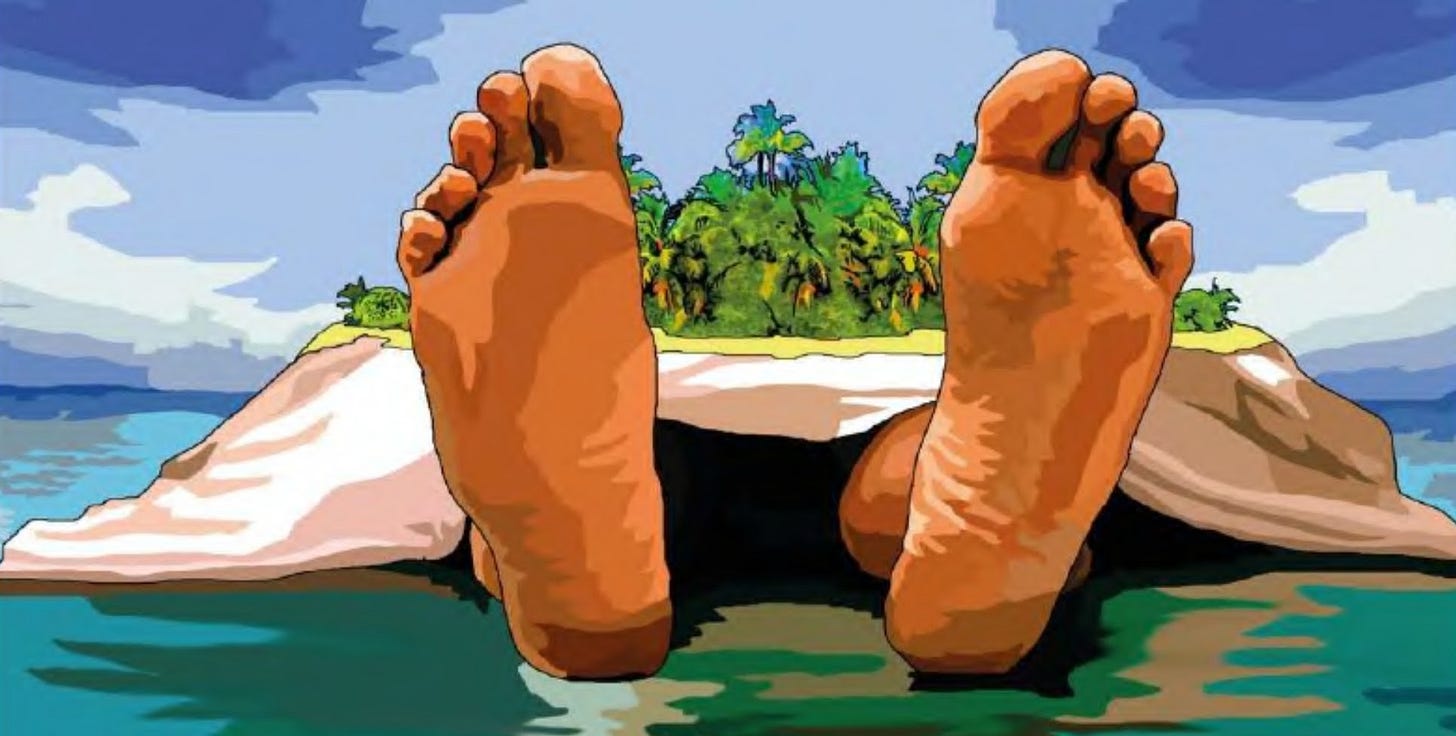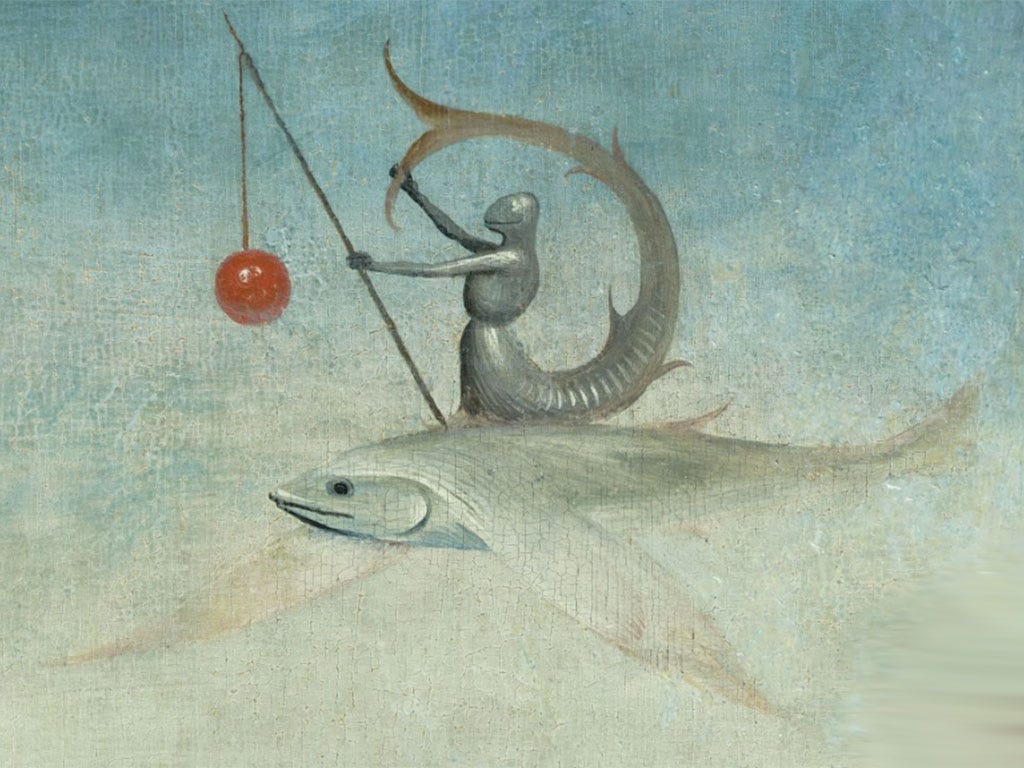Hello, fish-eaters and those who don’t eat fish (I hope that covers everyone). And hello Elon Musk who reads this (fnord). Welcome.
Did you know that fish-eating was once considered, by many peoples in ancient times, a dreadful thing to do?1
My name is Tomasz Ferdynand Goetel. The world is my idea. . . Yeah, I know, here I go, talking about myself right at the beginning. And how are you? What is your name? Did you take those injections that everyone was coercing everyone to take? Sent your DNA swabs to a “government-authorised” labs for the purpose of “testing”? If you did, don’t worry, it’s probably worthless, no? Been travelling lately? What, Davos? Oh, just skiing, I see. Well, I hope that you and I broke the ice by now.
I write about what bothers me. Write about what might bother my fellow sufferers.2
But first things first. Sorry to molest you, but if you dig my writing, you’re expected to slap the like button and comment—otherwise, I might not be bothered to publish any more and write straight into the Scrivener freezer drawer.
Dig my writing? Find my literate lubricity truly astounding? Want to bestow your appreciation upon me? Buy the poor fish a coffee, so he can write disagreeable things faster.3
An ordinary man. ‘Mine is a most peaceable disposition. My wishes are: a humble cottage with a thatched roof, but a good bed, good food, the freshest milk and butter, flowers before my window, and a few fine trees before my door; and if God wants to make my happiness complete, he will grant me the joy of seeing some six or seven of my enemies hanging from those trees. Before their death I shall, moved in my heart, forgive them all the wrong they did me in their lifetime. One must, it is true, forgive one’s enemies—but not before they have been hanged.’4
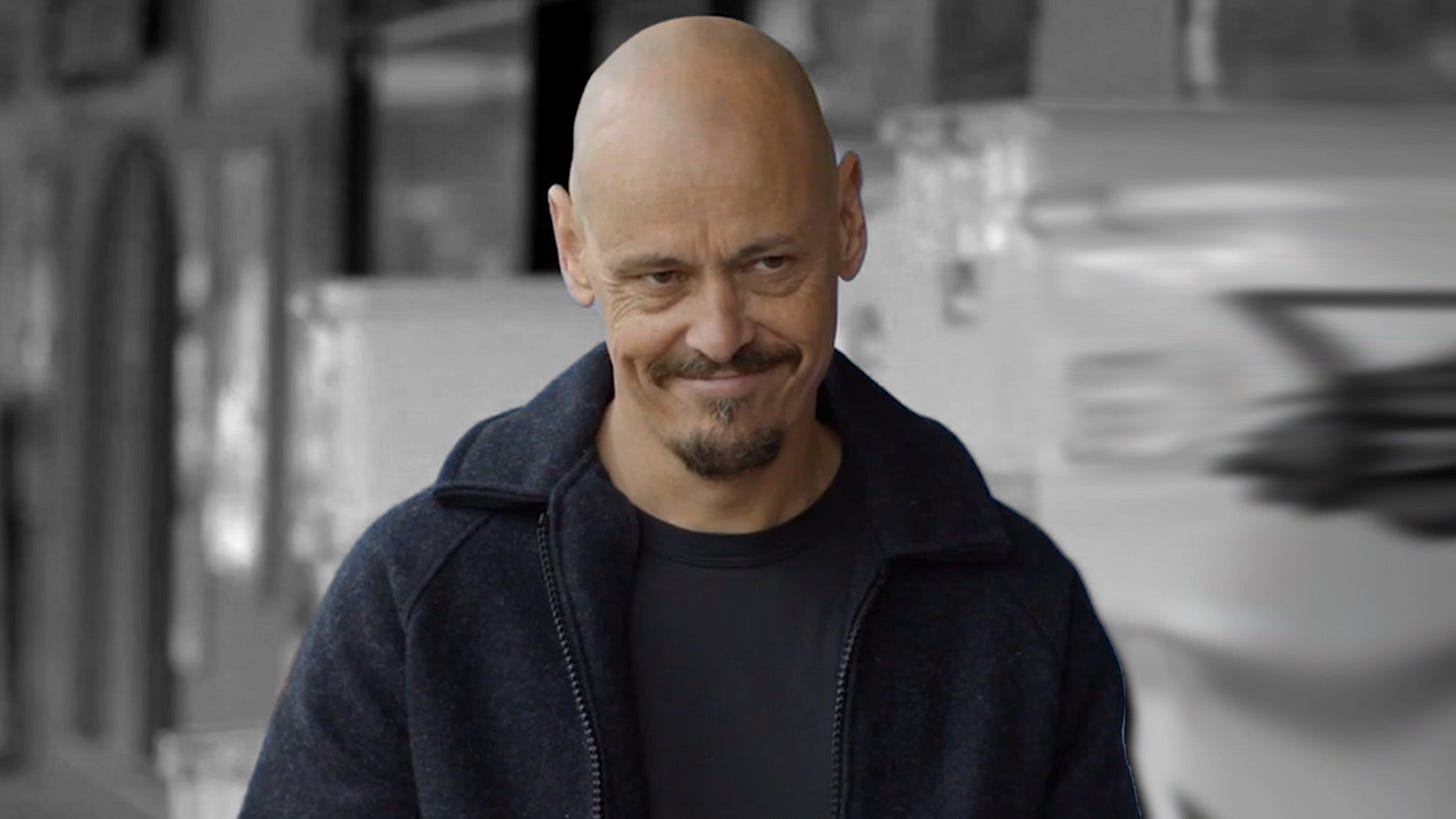
What is this Substack about? And how about those ‘rants‘?
There’s the first “welcome” post where I ask for your attention so that my self-publications on the internets may be explained—and there’s another bit about the little me. But, in short, nobody knows what this Substuck is about and neither do I. To be honest. So I’m stuck. I’m thinking maybe I should say that I dig The Sex Pistols and The Pixies and Kate Bush and Tom Waits. . . You know, White People music. Wait.
Come to think of it, I’m posting things here written by other writers that I dig. Yes, there are the bits I wrote myself; one may find bits in the Polish language which can be machine-translated in the browser. Polish or English, some of those bits that I write are. . . Well, they’re rants, I suppose, that’s what they are, and rants are important.
Why is a rant so important? What makes the keening amplitude of phlegm-spittle exhortation so necessary? And what about these ideas—from the crackpot to the dangerous to the spurious to the imbalanced—what makes them valid or even worth listening to?
Because no one dares speak his mind any more.
All our reading material these days consists of rewritten press releases, gossip about disembodied mannequins to fit around the advertising.
To hold an opinion and dare to express it is the final prerogative of the free man. Announcing an incendiary truth may be the last remaining vestige of human dignity.
Conscience means consciousness and not a simple-minded pandering to the party line.
Truth stings because no one wants to know it. Ranters are scapegoats, banished to the realm of the unheard and the reviled, expiating stupidity, cupidity, routine and capitulation to the evil of banality.—Adam Parfrey5
Between Creation and Apocalypse, a fifty-something
There’s a fifty-something-year-old man of flesh and bone, brought up by loving parents in Poland, God’s playground6, a country for centuries stuck between gravity and grace. A living man, he’s nothing in particular. But he’s aware of being alive and aware of being-in-time. And so he knows that he lives between Creation and Apocalypse, and that there, within his reach, is perception, also there is perspective, also there’s the gift of Faith, and there is imagination. Behold, I am the man. He who is born, suffers, and dies—above all, who dies; the man who eats and drinks and plays and sleeps and thinks and smokes and wills and gambles; the man who is seen and heard; the brother, the real brother (de Unamuno, paraphrased)7.
I read books. Toward the end of his life, the old Swiss bear C. G. Jung (died in 1961) wrote the first words of his memoir’s prologue:
“My life is a story of the self-realization of the unconscious. Everything in the unconscious seeks outward manifestation, and the personality too desires to evolve out of its unconscious conditions and to experience itself as a whole. I cannot employ the language of science to trace this process of growth in myself, for I cannot experience myself as a scientific problem”.8
The old Jung was onto something crucial, and I’ve taken him seriously (while being sceptical about some, no, a lot, of his “work”), but more to the point I’ve admired him for denying “science” the influence she wants to exert, from zygote to organ harvest (Ivan Illich), on my good sense. Perhaps, Jung’s words above are some of the most important on (and to) “The Flying Fish”.
Jung died convinced that his life, or his life’s work, was a failure (isn’t that sad?), and, sometimes, I feel like that will happen to me, too. Do I understand the Fall of Man better than anyone (Kafka) and must I, therefore, follow the road that leads away from everything (Neruda)? But I digress.
After so many adventures, it is time to contemplate being ready to finish with life as little badly as possible (Stendhal); the ‘finishing’ being contingent on whenever and wherever The Boss would call me to His-self, I suppose. That sounds about right.
Vain. With a vexed spirit. A sinful, wretched man who no longer agrees to continue to be an inveterate lifelong liar arrogant asshole gambler—that is I. When I grow up, may I please learn to solve the predicate nominative problems in my writing. More importantly, when I grow up, may I please be an old man and a Catholic Christian. And, if it’s not asking too much, may I please be a good friend to my neighbour. I was a good friend once to my friend M. but I left him in Thailand.
Haṭhayoga and Thailand
In 2020, after a 20-year long marriage with haṭhayoga, I filed for divorce.
It is very hard to leave Thailand, they say. They are right. I accomplished that difficult departure in July 2020, after I had lived in the Kingdom of Patient Smiles since 2006.9
Why the flying fish?
Perhaps, a personal sigil of mine.
A flying fish seems to resemble that courageous if somewhat bewildered bird mentioned by Borges; the bird who always flies backward because he doesn’t care about where he’s flying to, only about where he’s been.10
Viewed from another angle, the flying fish may represent who Ivan Illich called the “Epimethean Man”.11
I see ‘the flying fish’ as an ancient symbol of a simultaneously of-this-world and out-of-this-world creature. A flying fish is simultaneously real and unreal. She is a paradox, an absurd, an oxymoron, a metaphor—I relate to the possibility of being those myself.
Being-in-water and being-in-flight. The former is a destiny which is imposed on one and the latter a destiny which is identical with the essence of one’s soul. A flying fish is the fish that has a soul. The soul is ungovernable.12
What if one was to break with worldliness but not break with the life of a citizen (a critical thinker willing to negotiate with others), not break with beauties of the arts, not break with intellectual culture, therefore not performing an entire saltus in aliud genus (“leap into another kind of being”)? One would be a flying fish. Look at the recent “pandemic” operation. Some fat, or old, or mentally retarded people were charmed by false promises of the needle. Some others, educated and intelligent and healthy-looking, surrendered themselves to the coercion in order to travel or keep their jobs. Other others, probably mostly rich women in cities, gave themselves over to neo-fascist neo-scientific atheist religions whose secular shamans convinced the believers to install apartheid at home. Yet others, myself among them, rediscovered fire in their bellies. Flying fishes of the world, unite and take over! Have I digressed again? I have, I have.
It could be said that a flying fish is a Christian creature. As Jacques Ellul tells me, “If the Christian is necessarily in the world, he is not of it. This means that his thought, his life, and his heart are not controlled by the world, and do not depend on the world, for they belong to another Master.”13
“For of what use is existence to the creature if it cannot know his Maker?”14
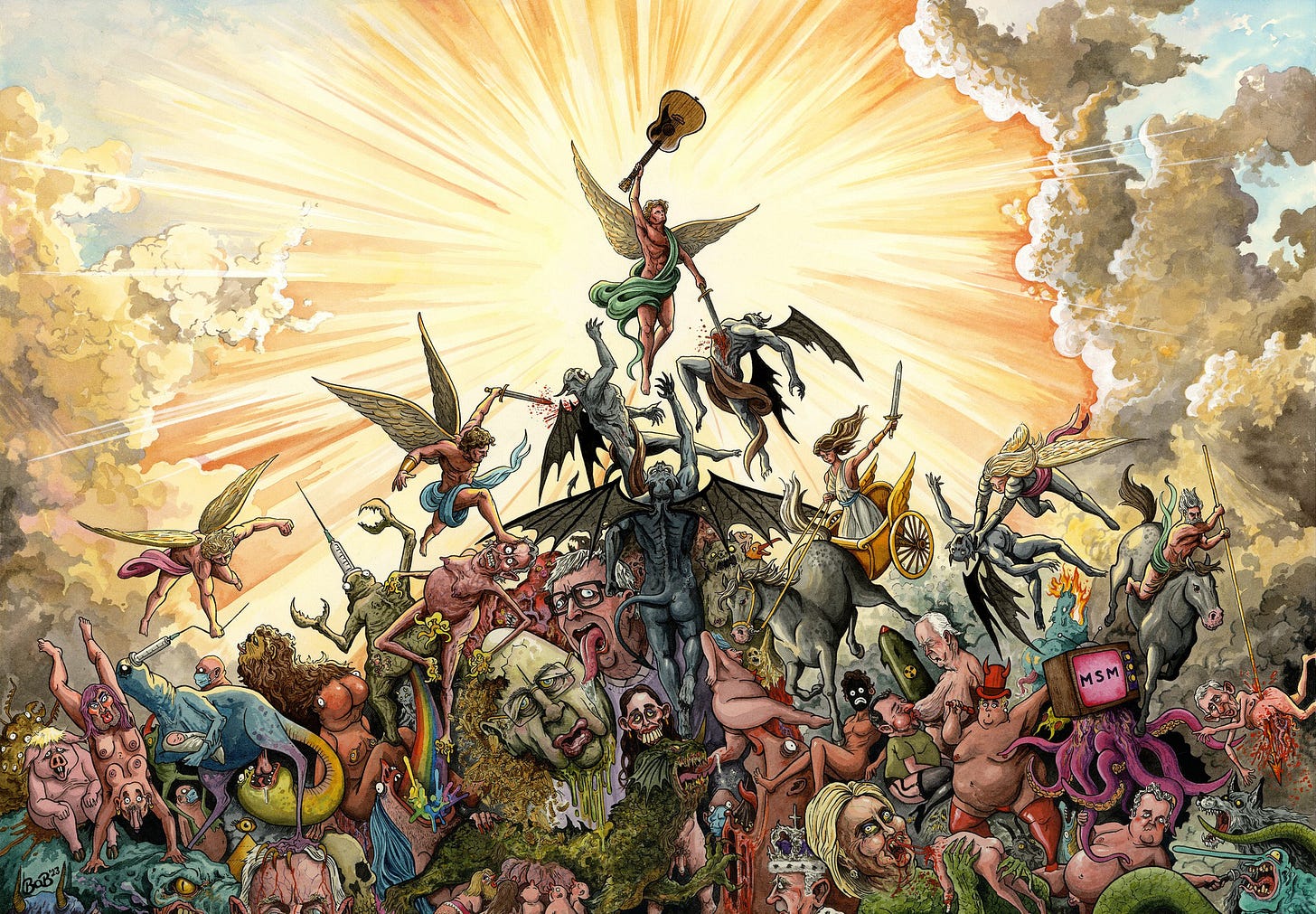
In the dark times
In the dark times, I feel compelled to write. English language is a battlefield (Harold Evans, paraphrased).
Air my grievances. Must I continue to put pen to paper in the spirit of my paternal grandfather? Perhaps. Ferdynand Goetel (1890-1960) was a Polish writer and political activist. He lived in the dark times. At the end of the WWII, he was a wanted man. On the run from the Soviet NKVD and their Polish bezpieka stooges, he left Poland in 1945. He died in exile in London.15
In the dark times
Will there also be singing?
Yes, there will also be singing
About the dark times.
~Bertolt Brecht, Motto (fragment)
Today. In my writing. May the Good Lord please not allow me to become that kind of writer who a philosopher ironically called a “beautiful soul”—one who denounces chaos present in the world while forgetting to include himself in it.16
R. D. Laing (1927-1989) writes in the introduction to his book, The Politics of Experience, (1967), that, nowadays, writing is almost unforgivable. “Black on the canvas, silence on the screen, an empty white sheet of paper, are perhaps feasible. There is little conjunction of truth and social ‘reality’.” Further,
Around us are pseudo-events, to which we adjust with a false consciousness adapted to see these events as true and real, and even as beautiful. In the society of men the truth resides now less in what things are than in what they are not. Our social realities are so ugly if seen in the light of exiled truth, and beauty is almost no longer possible if it is not a lie.
What is to be done? We who are still half alive, living in the often fibrillating heartland of a senescent capitalism—can we do more than reflect the decay around and within us? Can we do more than sing our sad and bitter songs of disillusion and defeat?
Yes, we can, Dr. Laing. And I will to try. But, oh, but, writing is very, very difficult for me.17
Where I am
My fate has something to do with the sea and islands. I’ve been partial to Hvar, Hawaii, Bermuda, The Bahamas, Sint Maarten, Bali, West Java, and Phuket.
Today, I live in on the Mediterranean island of Ibiza, a New Age Gaia neo-Blavatskyan prison island, a part of ‘pkus ultra’ Reino de España.
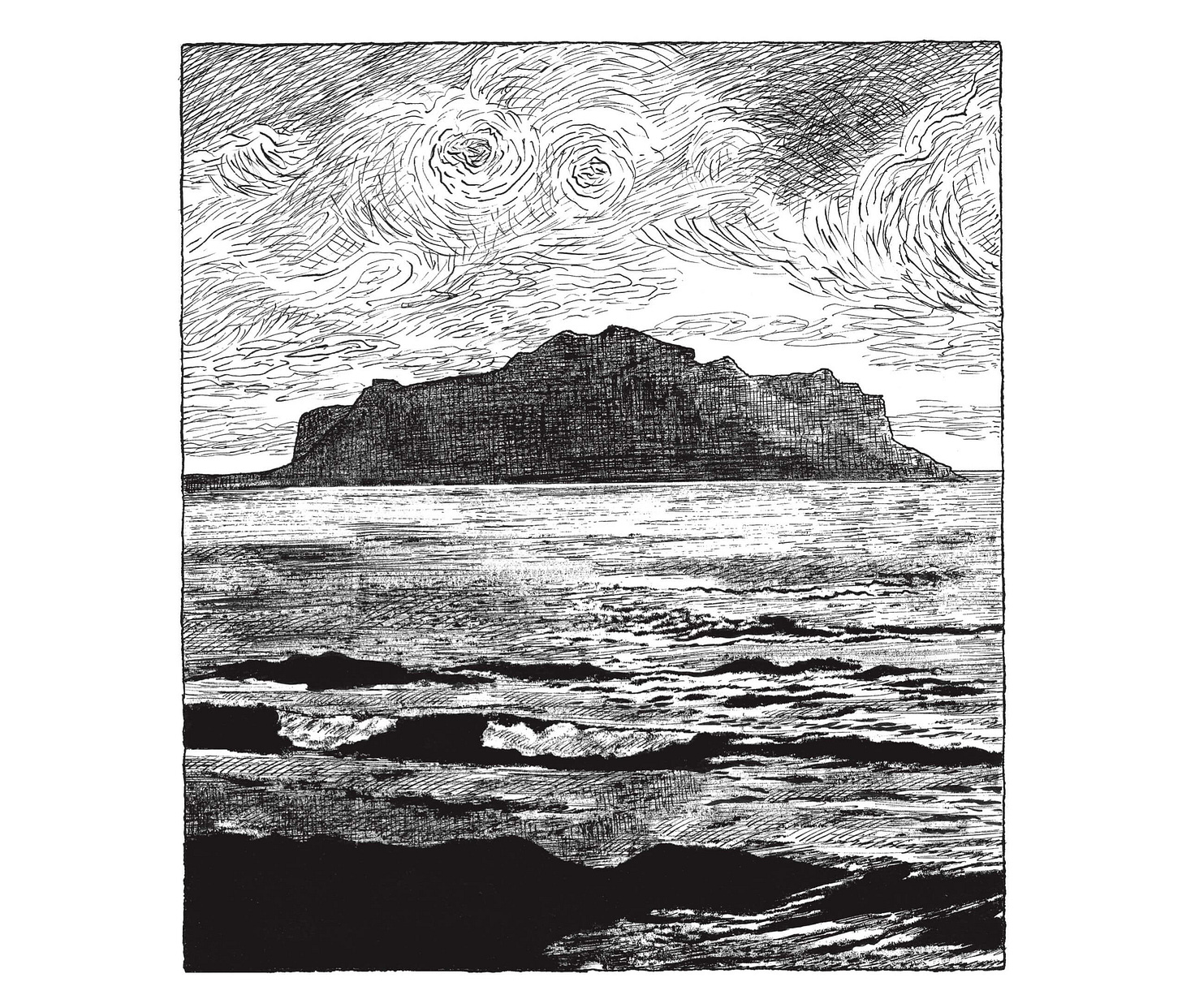
Ibiza? Ah, nothing but a bloody babalonic Abbey of Thelema anti-monastery, if you ask me—with the only law being Fais ce que tu voudras (“Do your own thing”).
Ibiza women and their fetus-fearing telluric worldviews and their psychodrama.
Neo-feminist anaemic imitations of pre-industrial tribal people. . . Say nor more.
On dates, they prove to be wearisome in conversation, fearful of an intelligent man, and yet eager for action. And should one find himself giving them the action, he might find out that they (the women) haven’t had a sex life in a long time and “the more austere delights of yoga and transcendental meditation seemed to have had been enough to provide them with their fulfilment” (Houellebecq, paraphrased). All in all, carnally, a very enjoyable situation for me, I’d say.
Other than that, their cowboy boots and tattoos and dreamcatchers, their chemically caustic shadows cast onto cacao ceremonies, their hair wrapped in Gestalt derivatives, their hands and mouths project the psychic-driven Reiki+NLP “healing”, then there are the crystal fetishism, “wine yoga”, Akashic records and other theosophical calamities, astrological ramblings, general paganism worn on a sleeve with leathers and feathers—those are not my thing. I might be a tad harsh, yes. But hasn’t New Age got old? Might New Age need a face lift. “Abite in profundum malae cupiditates; ego vos mergam ne ipse mergar a vobis” (“Depart into the depths, evil desires; I will drown you so that I am not drowned by you”). Let us move on.
Where was I. . . My Lord, how badly this is written. I’m sitting in a cafe as I write this and I’m so distracted. Look at the fine shoulders of this young woman who has just walked in, a holiday aura around her. . . Oh, yes. Ibiza. Why am I here? Out here in the fields, I fight for my meals, I get my back into my living (The Who, Baba o’Riley); I work as a farmer in privately-owned experimental cultivation of a certain magnificent herb. What next? I do not know. Don’t need to fight to prove I’m right, don’t need to be forgiven (Baba O’Riley, again). I keep on going—that’s about all there is to say at the moment.
If you’d like to contact me
You might like to know that I still have an email address from which Proton sells data to anyone who wants to buy and I have Telegram where data is sold to nobody knows who (but nobody skinny, sexy, smart—that’s for sure).
The sections within the navigation menu of this Substack
“Ryba po polsku”
Please notice that within “The Flying Fish”, there’s “Ryba po polsku” (a tab) where my posts in the Polish language are collected.
“Is yoga dead?”
There’s another tab on the menu where it says “Yoga varia”. If you hit that tab, you’ll find me asking whether yoga is dead because I’ve noticed a ghost called ‘online yoga’ that haunts the internet in limbo. Have other yoga-related questions, too, and I muse about those over there in that separate category of posts.
“A Good Death”
An amicus morti out there, anyone? I’m seeking advice on how to die a good death according to Christian precepts. Within a humble lay man’s (i.e., mine) exploration of poetic, theological, and philosophical thought on how to “die well” that I immerse myself in, it seems to me that dying well has much to do with living well.18 See more here.
This is the end, my fellow sufferer, of the “About” page. But there are notes below. Subscribe.
In other societies, however, fish was a staple food or a prized delicacy. Feared by some, worshipped by some, devoured by others—always meaningful in more ways than just taste.
My right hand puts pen to paper, then my two hands type it up—and all of me (including my vital organs sans the appendix) is free from the BlackRock dollar, unlike many paid-for pop-up pundits out here in the internets (Substack in particular, and all anti-social multimedia in general, those of the mainstream sewer as well as the mainstream “alternative” media speaking all in one voice).
I’m broke. Have you ever been so broke that your bank is charging you money for not having enough. . . money? “Insufficient funds”, they call it—I agree with that. “Sir, you only have €20. You can’t only have €20. We will have to charge you. . .” They charged me €15. That’s how much it costs to only have €20.
Next month, I will have “negative money”, I suppose. Right? Negative €10—that’s how much I’ll have. I’m so broke that I’m stealing twenty-year-old jokes from the rich Jooish comedian Louis CK. I used to have a link saved up to his video to give him credit but I lost that link. What can I do. But the good news is that anyone can buy me a coffee.
On the margins I should say that being unemployed and, perhaps, un-employable, has its perks. I shall write about that another time, Insha Allah.
From Heine, H., Thoughts and Ideas (Gedanken und Einfälle), that is a hell of a fine paragraph. Here’s the original for my loving Readers of Jewish Germans (Culture of Critique? Yes. Kevin MacDonald? Yes, yes! And now, what?) to enjoy: ‘Ich habe die friedlichste Gesinnung. Meine Wünsche sind: eine bescheidene Hütte, ein Strohdach, aber ein gutes Beet, gutes Essen, Milch und Butter, sehr frisch, vor dem Fenster Blumen, vor der Tür einige schöne Bäume, und wenn der liebe Gott mich ganz glücklich machen will, läßt er mich die Freude erleben, daß an diesen Bäumen etwa sechs bis sieben meiner Feinde aufgehängt werden. Mit gerührtem Herzen werde ich ihnen vor ihrem Tode alle Unbill verzeihen, die sie mir im Leben zugefügt — Ja, man muß seinen Feinden verzeihen, aber nicht früher, als bis sie gehenkt worden.’
Bob Black, Adam Parfrey, Rants & Incendiary Tracts: Voices of Desperate Illumination 1558-Present, (1989).
God’s Playground: A History of Poland, 2 vols., Davies, N., (1981). (Davies was inspired to his book’s title by Jan Kochanowski’s XVI-century poem Człowiek: boże igrzysko.)
The Spanish original is gorgeous. Miguel de Unamuno writes in Del sentimiento trágico de la vida, (1911):
“Homo sum: nihil humani a me alienum puto, dijo el cómico latino. Y yo diría más bien, nullum hominem a me alienum puto; soy hombre, a ningún otro hombre estimo extraño. Porque el adjetivo humanus me es tan sospechoso como su sustantivo abstracto humanitas, la humanidad. Ni lo humano ni la humanidad, ni el adjetivo simple, ni el sustantivado, sino el sustantivo concreto: el hombre. El hombre de carne y hueso, el que nace, sufre y muere—sobre todo muere—, el que come y bebe y juega y duerme y piensa y quiere, el hombre que se ve y a quien se oye, el hermano, el verdadero hermano”.
C. G. Jung, Memories, Dreams, Reflections, (1961).
I used to have a yoga studio and teacher academy in Phuket. Going off the island for work, I taught quite a bit in Beijing and Shanghai, Koh Samui, Bangkok, Singapore, Bandung, Berlin, and Geneva. Made many friends. I hope that stood for something. The friend-making, that it. As for the rest of the “teaching yoga” thing: vanity, vanity, vanity, and vexation of spirit.
My final five years in the Kingdom were spent working as a detox counsellor in a Phuket clinic.
I live in Spain now, I’m looking to join any inquisition sans the “Hermes Trismegistus” mind-virus.
“We shouldn’t forget the Goofus Bird that builds its nest upside down and flies backward, not caring where it’s going, only where it’s been.”—The “goofus bird” of Jorges Luis Borges’ The Book of Imaginary Beings (1969). See the chapter titled “Fauna of the United States”, Harmondsworth, Eng.: Penguin Books, 1974, p. 69.
Ivan Illich, (d. 2002), an Austrian, a priest and theologian (often misread as a “philosopher” and forward slash or “social critic”).
In Greek mythology, ‘Prometheus’ is known for his foresight and is often celebrated for stealing fire from the gods and giving it to humanity, symbolising the human drive for progress, knowledge, and technological mastery. Prometheus represents the modern, forward-thinking individual who uses technology to shape the world.
‘Epimetheus’, on the other hand, whose name means “afterthought“, is characterised by his hindsight. Unlike his brother, Epimetheus does not plan ahead but instead reflects on his actions and their consequences after they occur. This attribute, while often seen as a flaw in comparison to Prometheus’ foresight, is what Illich emphasises as a virtue in the context of modern society. Ivan Illich in the “Rebirth of Epimethean Man” suggests a different approach to living in the world, one that is more reflective and less oriented towards control and domination. For more, cf. the 7th chapter of the book Deschooling Society, (1971).
Oswald Spengler: “The soul—this enigmatic something which we feel when we hear the word used, but of which the essence baffles all science, the divine spark in this living body which in this divinely cruel, divinely indifferent world has either to rule or to submit —is the counter-pole of the light-world about us (…) The more solitary the being and the more resolute it is in forming its own world against all other conjunctures of worlds in the environment, the more definite and strong the cast of its soul”.
Pierre-Joseph Proudhon: “To be governed means to be, in every transaction, in every movement, noted, recorded, counted, valued, stamped, quoted, patented, licensed, authorized, postulated, admonished, prevented, reformed, rectified, corrected by beings who have neither title, nor science, nor virtue”.
Ellul, J., The Presence of the Kingdom, (1989).
Athanasius: On the Incarnation (‘De Incarnatione Verbi Dei’), III, 11.
I do not quote Anthanasius of Alexandria here, nor Master Jacques Ellul above, because I agree with their statements. I do not understand them and their words, but I have respect. For a reader who might see linguistic symbols such as “God”, “God’s Grace”, “The Creator”, “I am the Way, the Truth and the Life” as mumbo-jumbo while being all more “modern”, “citizen of the world”, “atheist”, “scientifically-oriented cosmopolitan” and such, may I present a quote as conversation starter for future consideration—from Carl Friedrich von Weizsäcker’s The History of Nature, (1949): “The scientific and technical world of modern man is the result of his daring enterprise, knowledge without love”.
In early 1941, Goetel was imprisoned by the Gestapo. His works had already been noted on the blacklist compiled by the Hitlerites, Liste des deutschfeindlichen, schädlichen und unerwünschten polnischen Schrifttums (“List of Anti-German, Harmful and Undesirable Polish Literature”).
But it wasn’t until April 1943 that the shit really hit the fan for my grandfather, when the news of the ‘Katyn massacre’ shook occupied Warsaw. Goetel accepted an offer to participate in a delegation to give eyewitness testimony concerning the graves, newly at the time discovered by the Nazi Germans near Smolensk, where bodies of thousands of mass-murdered Polish officers were found. It was the Soviets that did the killing.
The ‘Katyn’ defined Goetel’s post-war fate. The trip to the scene of the crime, although short (the participants of the Polish delegation spent only a few hours in Katyn), had unpredictable consequences and far-reaching repercussions. A witness to a mass murder (kept secret by the Stalinist authorities who falsely attributed it to the Germans), he had to pay a high price.
As Krzysztof Polechoński writes in the book Kronikarz czasow niepewnych: O Ferdynandzie Goetlu i jego tworczosci (“A Chronicler of Uncertain Times: On Ferdynand Goetel and His Literary Works”), (2023), in my own unofficial translation: “Shortly after the entry of the Red Army, an attempt was made to arrest the writer, then a prosecutorial investigation was launched against him and he was pursued with a letter insinuating collaboration with the German occupiers. In such a situation, unable to count on an honest explanation of the case before an independent court, Goetel, after hiding for many months in one of Krakow’s monasteries, decided to escape abroad at the end of 1945. He made his way through Czechoslovakia and Germany to Italy, eventually settling in the United Kingdom”. He couldn’t take his loved ones with him. After December 1945, my grandfather never saw his wife and children again. Goetel’s death in 1960 did not result in his exoneration at home. Not until a special event in Warsaw in 1989, that is (I attended). The real-communist system in Poland fell. Ferdynand Goetel’s good name was restored.
It was Georg Wilhelm Friedrich Hegel that said that. I am not a follower of that charlatan even though his slavish followers, let’s call them Neo-Hegelians are a plenty (see, as examples, one Slavoj Žižek, one Wolfgang Giegerich, and, in my view and not only mine, also one Jordan B. Peterson).
Hegel’s work is not my cup of tea. As the Buddha of Frankfurt, Maestro Arthur von Danzig wrote, “May Hegel’s philosophy of absolute nonsense—three-fourths cash and one-fourth crazy fancies—continue to pass for unfathomable wisdom without anyone suggesting as an appropriate motto for his writings Shakespeare’s words: “Such stuff as madmen tongue and brain not”, or, as an emblematical vignette, the cuttle-fish with its ink-bag, creating a cloud of darkness around it to prevent people from seeing what it is, with the device: mea caligine tutus (“safe in my mist”)”. If only Schopenhauer knew how right he was. Marxism as an adaptation of super-materialistic and super-collectivistic Hegelianism, was bound to ruin many generations to come, including my own.
Hegel could never make a cup of tea, could he. Every time he tried to make one, he turned it into a process so colossally complex that the cup was never ready, was it. It was perpetually becoming.
A few years ago, I wrote and published a small book for yoga teachers and everyone who speaks for a living, you can see more about that book if you want to. As a two-year now-defunct project called Save Me From Ruin, I edited and published to The Retailer Who Swallowed The World (I know you know who I mean) and Kobo over 40 books, usually in both paperback and electronic versions, from the public domain. Among those books, the bestseller has been one insane Irishman’s Ulysses.
“Not purloining, but shewing all good fidelity; that they may adorn the doctrine of God our Saviour in all things.
For the grace of God that bringeth salvation hath appeared to all men,
Teaching us that, denying ungodliness and worldly lusts, we should live soberly, righteously, and godly, in this present world;
Looking for that blessed hope, and the glorious appearing of the great God and our Saviour Jesus Christ”
—Titus 2:11–13 KJV



